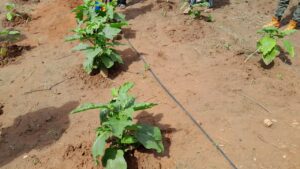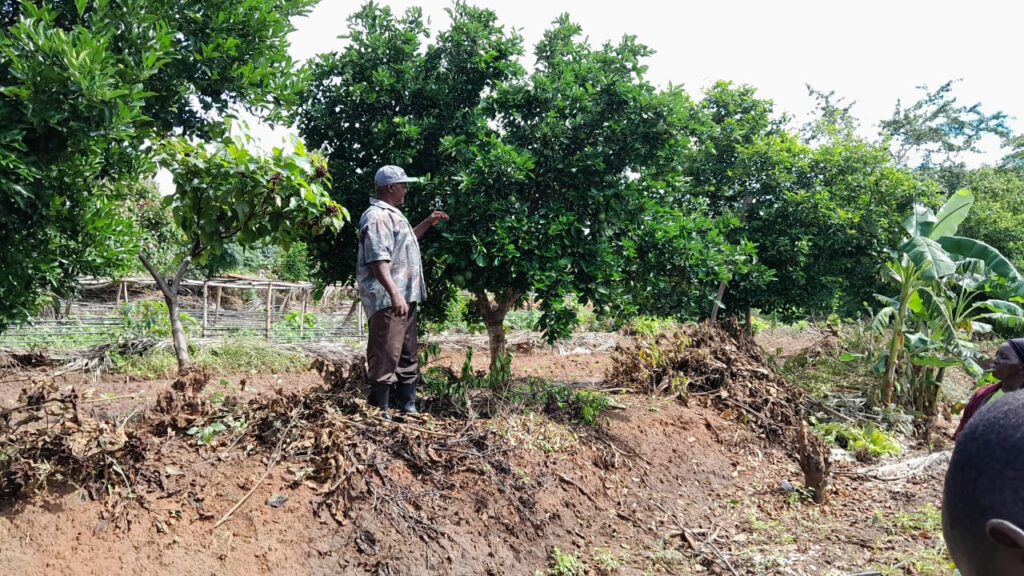By Agnetta Okwemba
Kwale County is set to boost livelihoods through a transformative tree-growing initiative as part of the Restore Africa Program, a 30-year land restoration project led by World Vision Kenya.
The program, running in five Kenyan counties – Kwale, Kilifi, Narok, Elgeyo Marakwet, and Migori – seeks to restore 250,000 hectares of degraded land, uplift 250,000 small-scale farmers, and sequester 10 million tonnes of carbon dioxide.
In the heart of Lunga Lunga Sub- County, Kikoneni Ward, we meet John Mutuku tending to his 5-acre farm, which now includes fruit trees alongside his regular crops of kale, eggplant, okra, and bixa. Mutuku, a farmer for over 30 years, says incorporating fruit trees has brought a positive financial shift to his farm.
The Restore Africa initiative, spearheaded by the Global Evergreening Alliance, operates in Kenya, Uganda, and Malawi. In Kenya, World Vision leads a consortium of partners, including JUSTDIGGIT, Self Help Africa, Green Belt Movement, ICRAF, and Africa Harvest, focusing on tree growing to restore degraded land and support climate-smart agriculture.
Since its inception in 2022, the program has already seen significant progress. According to Elizabeth Nyagoha, Natural Resource Management Coordinator for the Restore Africa Program, 285,000 trees have been planted in Kwale and 297,000 in Kilifi, with a target of planting 1.6 million trees by December 2025.
“Our goal is to plant 10 million trees before the end of the project,” Nyagoha states.
Farmers in Kwale have been trained on sustainable agriculture and market access, enabling them to diversify their crops and boost income. In Lunga Lunga, the focus is on improved chicken farming; in Shimba Hills, it is citrus production, while Kinango farmers have chosen green grams as their key crop.
“When we engaged potential buyers, the prices offered were beyond what we had anticipated,” Mutuku remarks, hinting at the emerging market opportunities facilitated by the program.
Additionally, the initiative includes a carbon credit component, where farmers who plant trees can earn income every five years from carbon sales. “Now, I can plant trees not just for the environment but as a financial asset for my family,” Mutuku adds.
The final phase of the tree-planting exercise is set to take place during the long rains of 2026, marking a crucial milestone in Kwale’s quest to restore degraded land and improve local livelihoods.


